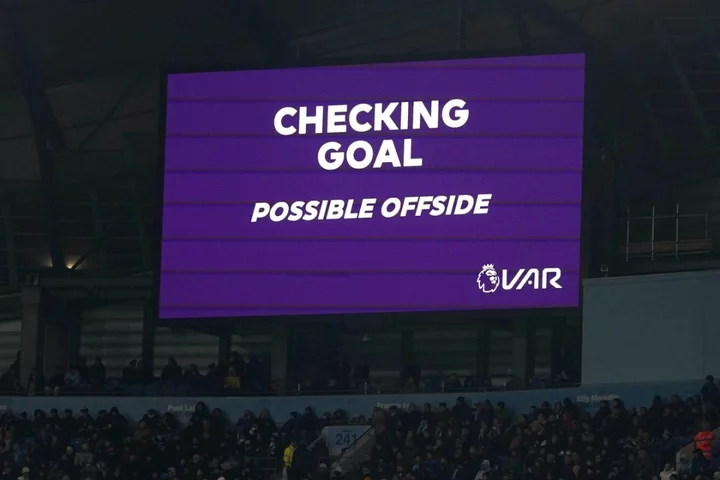A review of how VAR is used in the English game is under way after miscommunication between officials led to a Liverpool goal being wrongly disallowed on Saturday.
Here, the PA news agency provides an update on where we are.
What happened?
On-field referee Simon Hooper and his assistants flagged Luis Diaz offside after he fired in what would have been the opening goal in the Reds’ Premier League match at Tottenham on Saturday.
Crucially, VAR Darren England thought the on-field decision had been onside. So although he followed the correct procedure in drawing lines and identifying that Diaz was onside, by telling the on-field officials “check complete” they thought their decision to give offside had been upheld by the check.
Only in the seconds which followed did the VAR operators realise their error, by which time play had restarted. Current protocols do not permit a decision to be revisited once that has happened.
How did Liverpool react?
The club issued a statement on Sunday night saying that sporting integrity had been undermined by the error and that they would “explore the range of options available given the clear need for escalation and resolution”. The club requested – and were sent – the audio of the incident before it was released publicly on Tuesday evening.
What happens next?
The first thing to say is that Professional Game Match Officials Limited (PGMOL) admitted on Saturday evening that a “significant error” had occurred. As well as standing down England and the assistant VAR Daniel Cook for duties on Sunday and Monday, plus the weekend to come, it has identified some “key learnings” from the incident.
These include the development of a new communications protocol to enhance clarity between referees and VARs. Phil Bentham has been brought into PGMOL from rugby league to improve communication between officials and will no doubt be key to this work.
VARs will now also confirm the outcome of their check with their assistants in the booth, before relaying the final decision to on-field officials.
PGMOL and the Football Association will also review the policy allowing officials to be involved in domestic league matches overseas, after England and Cook were part of a team which oversaw a game in the United Arab Emirates last Thursday, arriving back in the UK on Friday morning.
What has the Premier League said?
The league issued a statement saying that the Diaz incident highlighted “systemic weaknesses” in the VAR process and said a wider review to seek consistently-higher standards would now take place.
Besides improving communication between officials, what else could change?
The incident has led to renewed calls from fans and pundits to allow the conversations between VARs and referees to be broadcast live. Eighty per cent of fans supported this being introduced in a Football Supporters’ Association survey published in the summer and the boss of TNT Sports – one of the league’s key broadcast partners – said in July it was a “huge missed opportunity” not to have such a system in place.
While the Premier League has never publicly given its view on live audio, it was part of a World Leagues Forum poll published in June which found 25 out of the 41 leagues surveyed supported its introduction.
Crucially though, the International Football Association Board (IFAB), which sets the game’s laws, is understood not to have received any requests so far in the current cycle to trial a live audio system.
What about in-stadium announcements like we had at the Women’s World Cup?
To date this has been a FIFA-only trial, but IFAB is prepared to open it up to allow other competitions to take part. However, the announcements are limited to decisions where an on-field review is conducted by a referee at a pitchside monitor. Offside decisions such as the Diaz incident are not checked in this way.
What about semi-automated offside?
This is in operation in a number of major competitions, having first been trialled at the men’s World Cup in Qatar. However, the Premier League has so far opted not to introduce it. It can also be argued that it would not have helped in a situation like Diaz – the existing technology was used to identify that Diaz was onside, the mistake was human error, pure and simple.

